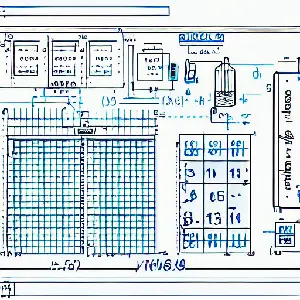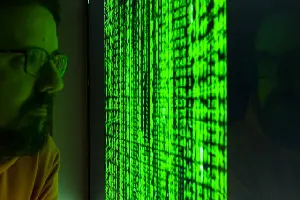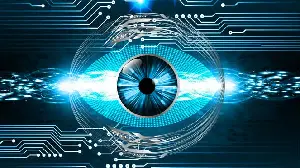The Driving Forces Behind Success
Published:
 Success, a destination many of us yearn for, is rarely a result of luck or mere chance. Instead, it’s fueled by a combination of key factors, each of which contributes to the intricate journey toward achievement. Passion, the spark that ignites our desire to reach new heights, plays a pivotal role in driving us forward. It fuels the energy and enthusiasm we need to tackle challenges and persevere when the road gets tough. Vision, that clear picture of where we want to be in the future, provides direction and focus, helping us chart a course toward our goals. Knowledge, the accumulation of skills and insights, ensures we have the necessary tools to navigate obstacles and make informed decisions along the way. Read more
Success, a destination many of us yearn for, is rarely a result of luck or mere chance. Instead, it’s fueled by a combination of key factors, each of which contributes to the intricate journey toward achievement. Passion, the spark that ignites our desire to reach new heights, plays a pivotal role in driving us forward. It fuels the energy and enthusiasm we need to tackle challenges and persevere when the road gets tough. Vision, that clear picture of where we want to be in the future, provides direction and focus, helping us chart a course toward our goals. Knowledge, the accumulation of skills and insights, ensures we have the necessary tools to navigate obstacles and make informed decisions along the way. Read more
 We all have deadlines—those crucial due dates that hover over us, often feeling like a looming cloud, threatening to rain down stress and pressure if we don’t meet them. Whether it’s a work project, a school assignment, or a personal goal, these deadlines can seem like heavy burdens, especially when we’re juggling multiple responsibilities at once. It might seem tempting to ignore them, to push them aside for just a little while longer, thinking that taking a break from the pressure might offer some temporary relief. However, the truth is that deadlines don’t simply vanish because we choose to ignore them. They only grow more urgent and imposing the longer we procrastinate.
We all have deadlines—those crucial due dates that hover over us, often feeling like a looming cloud, threatening to rain down stress and pressure if we don’t meet them. Whether it’s a work project, a school assignment, or a personal goal, these deadlines can seem like heavy burdens, especially when we’re juggling multiple responsibilities at once. It might seem tempting to ignore them, to push them aside for just a little while longer, thinking that taking a break from the pressure might offer some temporary relief. However, the truth is that deadlines don’t simply vanish because we choose to ignore them. They only grow more urgent and imposing the longer we procrastinate.  In a world inundated with information, the illusion of knowledge can be a slippery slope. According to cognitive scientist Steven Sloman, our perception of understanding may be more of an illusion than we realize. This phenomenon, known as the knowledge illusion, suggests that we often believe we comprehend a subject merely because those around us seem to understand it. Here’s a closer look at this cognitive quirk and its implications, especially in the realm of politics. By overestimating our grasp of complex issues, we risk forming strong opinions or making decisions without truly understanding the underlying details, a tendency that can have far-reaching consequences in an era of misinformation.
In a world inundated with information, the illusion of knowledge can be a slippery slope. According to cognitive scientist Steven Sloman, our perception of understanding may be more of an illusion than we realize. This phenomenon, known as the knowledge illusion, suggests that we often believe we comprehend a subject merely because those around us seem to understand it. Here’s a closer look at this cognitive quirk and its implications, especially in the realm of politics. By overestimating our grasp of complex issues, we risk forming strong opinions or making decisions without truly understanding the underlying details, a tendency that can have far-reaching consequences in an era of misinformation.  In the hustle and bustle of our daily lives, it’s not uncommon to feel constantly pulled in multiple directions, overwhelmed by the demands and expectations of those around us. Whether it’s family, friends, colleagues, or society at large, there always seems to be someone or something requiring our time, attention, and energy. While it’s natural to want to be there for others and fulfill our roles in their lives, the constant giving can leave us feeling depleted, distracted, and disconnected from our own needs and desires. Yet, there’s a notion that suggests a counterintuitive approach to this overwhelming dynamic—that the less you invest in caring about others, the more space and time you create to focus on yourself.
In the hustle and bustle of our daily lives, it’s not uncommon to feel constantly pulled in multiple directions, overwhelmed by the demands and expectations of those around us. Whether it’s family, friends, colleagues, or society at large, there always seems to be someone or something requiring our time, attention, and energy. While it’s natural to want to be there for others and fulfill our roles in their lives, the constant giving can leave us feeling depleted, distracted, and disconnected from our own needs and desires. Yet, there’s a notion that suggests a counterintuitive approach to this overwhelming dynamic—that the less you invest in caring about others, the more space and time you create to focus on yourself.  Computers run on a combination of hardware and software. The hardware, or physical components, include the central processing unit (CPU), memory (RAM), storage (hard drive or solid state drive), and various peripheral devices such as a keyboard and monitor. The CPU, also known as the “brain” of the computer, is responsible for executing instructions, or code, that make up a program. Programs are written in various programming languages, such as C++, Python, or Java, and are then compiled or interpreted into machine code, which the CPU can understand and execute.
Computers run on a combination of hardware and software. The hardware, or physical components, include the central processing unit (CPU), memory (RAM), storage (hard drive or solid state drive), and various peripheral devices such as a keyboard and monitor. The CPU, also known as the “brain” of the computer, is responsible for executing instructions, or code, that make up a program. Programs are written in various programming languages, such as C++, Python, or Java, and are then compiled or interpreted into machine code, which the CPU can understand and execute.  Software is a collection of instructions and data that tell a computer what to do and how to do it. It is the non-tangible component of a computer system, as opposed to the hardware, which is the tangible physical component. Software is the foundation upon which computer systems are built. It is the set of programs, procedures, algorithms, and data that tell a computer what to do and how to do it. Without software, a computer is just a collection of electronic components that cannot perform any useful tasks.
Software is a collection of instructions and data that tell a computer what to do and how to do it. It is the non-tangible component of a computer system, as opposed to the hardware, which is the tangible physical component. Software is the foundation upon which computer systems are built. It is the set of programs, procedures, algorithms, and data that tell a computer what to do and how to do it. Without software, a computer is just a collection of electronic components that cannot perform any useful tasks.  The phrase “Never touch your idols - the gilding will stick” serves as a powerful reminder that the individuals we idolize and look up to are not perfect. It suggests that by placing these individuals on a pedestal and holding them to such high standards, we run the risk of being disappointed when we ultimately learn of their flaws and shortcomings. While it is natural and even healthy to find inspiration and motivation from others, the phrase cautions against placing individuals on an unreachable pedestal, instead encouraging us to embrace our own imperfections and to recognize that nobody is infallible.
The phrase “Never touch your idols - the gilding will stick” serves as a powerful reminder that the individuals we idolize and look up to are not perfect. It suggests that by placing these individuals on a pedestal and holding them to such high standards, we run the risk of being disappointed when we ultimately learn of their flaws and shortcomings. While it is natural and even healthy to find inspiration and motivation from others, the phrase cautions against placing individuals on an unreachable pedestal, instead encouraging us to embrace our own imperfections and to recognize that nobody is infallible.  Computer vision technology is a field of study that involves the development of algorithms and systems that enable computers to interpret and understand visual data. This includes the ability to analyze and understand images and videos, and to extract meaning and information from them. Computer vision technology is used in a wide range of applications, including robotics, image and video analysis, and machine learning. It is based on techniques from fields such as computer science, engineering, and mathematics, and involves the use of machine learning algorithms, image processing techniques, and other advanced methods to analyze and interpret visual data.
Computer vision technology is a field of study that involves the development of algorithms and systems that enable computers to interpret and understand visual data. This includes the ability to analyze and understand images and videos, and to extract meaning and information from them. Computer vision technology is used in a wide range of applications, including robotics, image and video analysis, and machine learning. It is based on techniques from fields such as computer science, engineering, and mathematics, and involves the use of machine learning algorithms, image processing techniques, and other advanced methods to analyze and interpret visual data.